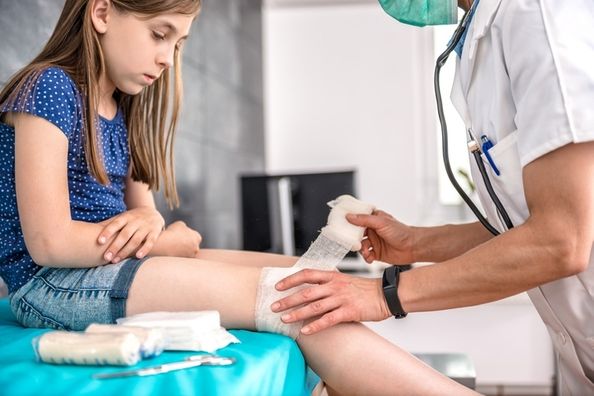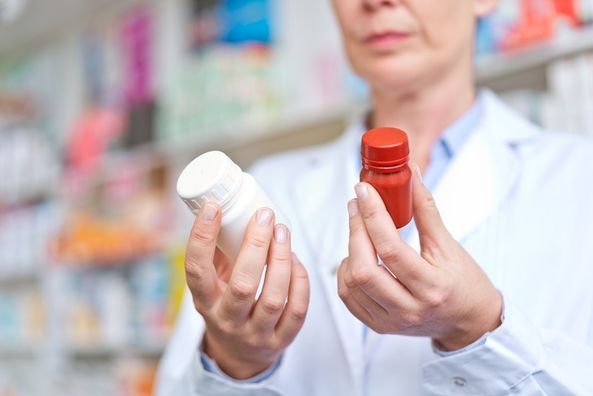The summer heat can be a great change of pace from those cold winter months. There’s nothing quite like trading your jeans for shorts or your sweater for a light t‑shirt. Summer warmth is often the signal for vacation, relaxation, and days spent with friends.
While you’re enjoying the warmer weather, it’s important to keep heat and sun safety in mind too. From afternoons by the pool to bike rides by the lake, no matter what summer activity you choose, the heat has an impact on your body — and especially your heart.
Knowing how heat affects your heart can help you take precautions that will help you stay cool — and healthy — this summer. Here are 4 ways heat is affecting your heart.
1. Heat Makes Your Heart Work Harder
In general, when it is hotter outside, your body — and your heart — have to work harder to keep you cool. Your heart is actually pumping more blood from your organs to underneath your skin, which puts your heart under a different kind of stress than normal.
Like sweating, this is just one of the natural ways your body is doing its job to keep you cool. But it’s important to remember that even if you don’t feel like you’re doing a lot, your body is still working harder than usual.
2. Keep Track of Your Pulse
While bradycardia (slow heart rate), as well as tachycardia (fast heart rate), may be related to underlying electrical problems involving the heart, heat-related illnesses like heat stroke or heat exhaustion can also come with the heart-related symptom of a fast pulse.
If you feel your heart racing, take a break and assess yourself for other symptoms of heat stroke or heat exhaustion. If your heart rates fail to improve with rest, cooling, and fluids, this may represent an abnormal heart rhythm including atrial fibrillation, which can be associated with a different type of stroke, and you should seek medical attention.
Heat Exhaustion vs. Heat Stroke Symptoms
Heat Exhaustion
- Quick pulse (weak)
- Muscle cramps
- Headache or dizziness
- Feeling nauseous or vomiting
- Skin feels cold and clammy
Heat Stroke — CALL 911
- Quick pulse (strong)
- High body temp (103°F or above)
- Headache, dizziness, or confusion
- Feeling nauseous
- Skin feels hot (dry or damp)
For most adults, the average resting heart rate is between 60 and 100 beats per minute. You may be able to feel your heart beating faster than usual, but it can also be helpful to take your own pulse if it feels out of the ordinary.
To check your pulse:
- Place your thumb on the inside of the wrist or two fingers (pointer and middle) on the side of your neck.
- Count the number of heartbeats for 30 seconds — use a timer.
- Multiply by 2.
- That is your heart rate!
Additional options to check your heart rate can include using a personal watch with a heart rate monitor, a blood pressure machine that will give you a pulse reading, or a pulse oximeter.
3. Extreme Heat Events and Heart Events
When it comes to those hot, hot summer days, it’s often best to take it easy. In addition to heat exhaustion and heat stroke, extreme heat events have been associated with higher cardiovascular death rates.
Whether you have a heart condition or not, it’s a good idea to pay attention to the temperature and to take steps to protect your heart.
Avoid things like exercising during the hottest times of the day, and opt for spending time in air-conditioned spaces when possible. Be mindful of the weather, and pay attention to warnings of “extreme heat,” which are 2 or 3 days in a row when the temperature is above 90°F.
4. Monitor Heart Medication Side-Effects
If you are a heart patient, you may be taking medication to manage your condition or maintain your heart health. During the summer, it’s a good idea to re-read potential side effects, because some heart medications can affect your body’s ability to respond to heat.
Heart medications can make your body more vulnerable to hotter temperatures — and more susceptible to heat-related illnesses like heat stroke.
Some heart medications that may cause more serious reactions to hot temperatures include:
- Ace receptor blockers
- Ace inhibitors
- Beta blockers
- Calcium channel blockers
- Diuretics
If you are considering starting an exercise routine this summer, talk to your Duly Health And Care primary care provider about your heart condition and any medications you are taking.
Put Your Heart Into Heat Safety
Just like the sun, heat is part of what makes summer so nice. It’s great to spend time outdoors in the sunshine and warmer temperatures — but it’s not without its dangers.
Whether you spend your time reading a book in the sun or trying to meet your step goal, taking the necessary precautions to stay safe in the heat can help you enjoy your summer to the fullest.
If you have questions about summer safety — or about how your medications may react to heat and sun — schedule a visit with a Duly Health and Care provider today.
Health Topics:








